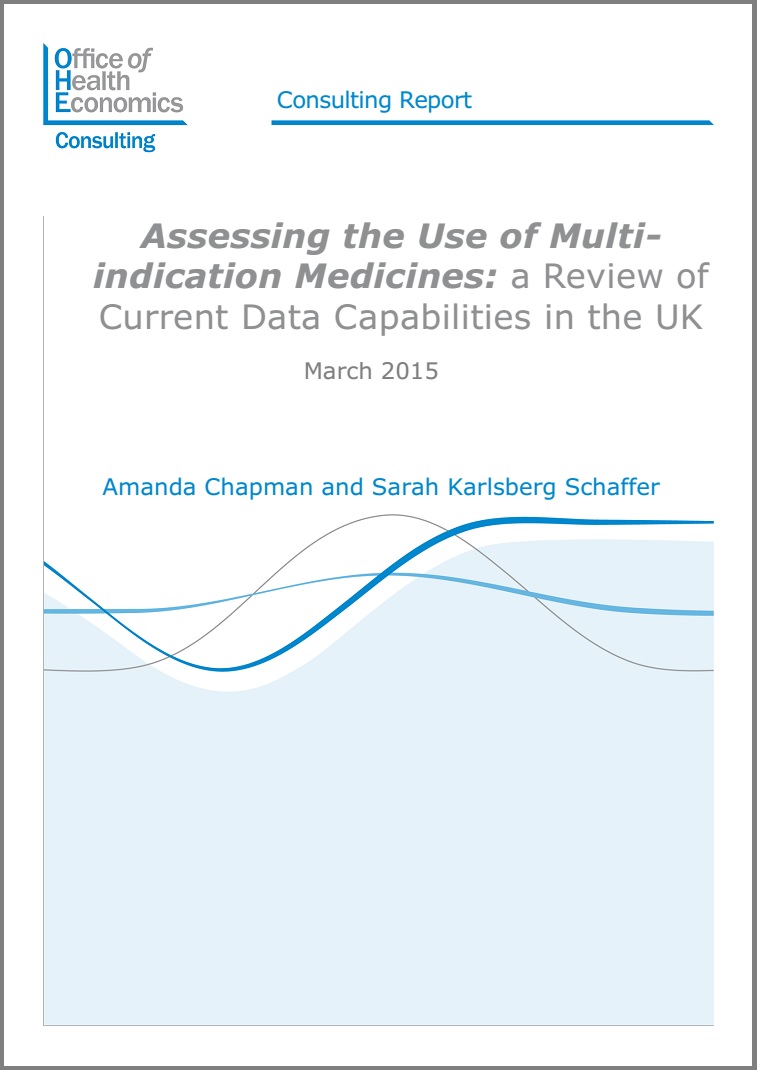Assessing the Use of Multi-indication Medicines: A Review of Current Data Capabilities in the UK
A new OHE Consulting Report considers the data capabilities in the UK for monitoring medicine use according to indication using real world data.
A new OHE Consulting Report considers the data capabilities in the UK for monitoring medicine use according to indication using real world data.
Although the capabilities for data collection alongside routine clinical practice in the UK is always expanding, one important limitation is the difficulty in assessing medicine use according to what that medicine has been used for, where the medicine has multiple indications. This impedes our ability to monitor uptake, identify variation in access and analyse the value of medicines in routine practice. Moreover, the demand by decision-makers and regulators for ‘real world data’ (data collected outside the context of a clinical trial) is rising, in response to increased reliance on performance-based reimbursement arrangements and adaptive approaches to licensing. This signifies increased evidence requirements in the post-marketing phase, which must be supported by good quality data collection alongside routine clinical practice.
This report, commissioned by The Association of the British Pharmaceutical Industry (ABPI), summarises current capabilities for monitoring medicine use by indication across the four countries of the UK, highlighting best practice and outlining the further steps required to improve capabilities. We found that, whilst in no country are prescriptions routinely issued with an attached diagnosis, the data linkage capabilities to infer this are the most advanced in England. However, data analysis is based on inferences and coverage is limited. In Wales, Scotland and Northern Ireland, lack of hospital prescription data poses an important barrier for the assessment of medicine use by indication, with limited primary care diagnostic data posing further difficulties in Scotland and Northern Ireland. The report highlights upcoming initiatives that may alter this landscape, describes three promising local programmes that demonstrate opportunities for expanding capabilities, and makes a series of policy recommendations.

